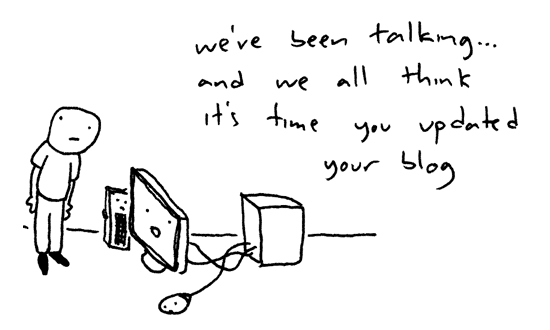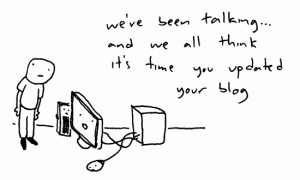I have a commute to work. I live west of Midland, Michigan and my office is in Saginaw Township, Michigan. I’ve been driving roughly the same route for 14+ years. 80 minutes per day. 4 times per week. When you do the math, it’s kind of depressing. I’ve been commuting close to 150 days straight.
I often hear about colleagues who have a two minute drive to the office. “Yeah, it’s two or three minutes. It just depends on whether I catch the light.” Or better yet, “It only takes me five minutes to walk to the office, so I usually go home for lunch.”
Then there’s the guy in New York City who lives upstairs from the office. That’s way too close, in my opinion. Or at least don’t let your patients know it. I’d feel a lot more comfortable calling on a Saturday if I knew it was only a walk down the stairs for you. Just sayin’.
There are obvious advantages to a short commute. I think of all the wasted time that I could be spending with my family. I have two little boys, so they’re not in a lot of activities yet, but I know that’s going to be complicated. I’m not sure how it’s going to work. Perhaps I’ll squish a four day week into three days some of the time. I’ll cross that bridge when I get to it. A shorter commute would allow me to sleep in a little longer, too. I feed 12 horses, two dogs and a miniature donkey most mornings. So I get up pretty early. Shaving a half hour off of my commute would mean another half hour of shut-eye. I’ve always been one to go to bed early, but that gives me even more of an excuse.
I generally like to know what’s on the schedule for tomorrow and even for the week. So I usually go online to check the schedule if I didn’t take a look the day before. Occasionally you’ll see that one patient on the schedule. You know the one. She’s the one that makes you contemplate injuring yourself while mowing the lawn, just so you can miss tomorrow. Or the guy with the removable case that gets worse. Every. Time. You. Touch. It.
I’m here to tell you. 40 minutes is a long time to think about those patients. 40 minutes gives me time to contemplate each and every way that appointment can go horribly wrong. By the time I get to work, I’ve already lived those tragedies in my mind several times. The upside is that they never go as badly as I’ve imagined them. There’s almost always less swearing and often less bleeding.
The upside of a 40 minute commute is that there’s some time to unwind from work. I listen to audiobooks and podcasts almost constantly. 80 minutes a day gives me some time to enjoy these. I also use the Spotify premium app to listen to whatever kind of music I’m feeling like. My time in the car allows me a chance to think of ideas to blog about. Some of my best ideas for www.meadfamilydental.com have come in my morning commute. This very blog post was inspired by the ride in this morning. I’m less creative in the afternoon, since I’ve usually spent the day working on patients so I generally just unwind. But I think my family gets a better, more relaxed version of me because I’ve got decompression time.
Anyone else have a commute? I’m interested to hear about it. Thanks for reading!





